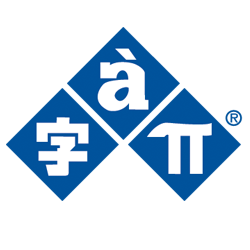July 19, 2023 / by the SimulTrans Team Estimated read time: 4 minutes
4 Questions to Ask When Selecting a Translation Partner
 Once you’ve weighed all of your translation solution options and determined that an all-in-one language services provider (LSP) is the best fit for your organization, there’s just one thing left to do – select a translation partner. How can you be sure you make the right choice?
Once you’ve weighed all of your translation solution options and determined that an all-in-one language services provider (LSP) is the best fit for your organization, there’s just one thing left to do – select a translation partner. How can you be sure you make the right choice?
A good way to start is to ask the company you’re considering four key questions:
Question 1: Do You Offer all the Services I Need, both Now and in the Future?
An experienced LSP that provides extensive in-house language services and localization tools will be best equipped to meet your current and future requirements.
Here’s a brief checklist:
- Translation Services: Linguists can translate multiple content types, including documents, software, websites, and audio and visual materials.
- Tools & Technology: Localization engineers know how and when to deploy the latest translation management tools to accelerate timelines, improve quality, and reduce costs.
- Desktop Publishing: Multilingual publishing specialists are on hand to format and edit translated documents to ensure they match their original layouts.
- Software Testing: Quality assurance testers review each translated application to catch any bugs and ensure all text appears correctly and is contextually accurate.
Question 2: Which Localization Management Tools Do You Use?
Look for an LSP that not only has a comprehensive suite of translation tools but can also integrate with your internal applications.
Check whether the company offers the following:
- Machine Translation: Deploying neural machine translation (NMT) technology with post-editing by professional human translators can be a viable option for larger projects.
- Translation Memory: Creating translation memory files allows previous translations to be re-used, thereby avoiding repeat work and improving consistency across projects.
- Connectors: Using connectors to integrate with your content management system (CMS) or marketing platform to enable content sharing.
Question 3: Do You Have Expertise in my Industry?
Verify that the company employs translators who are subject matter experts and has done work for customers in your industry (and can provide references).
Commonly requested industries include:
- Business & Technology: hardware, software, security, finance, telecommunications, manufacturing
- Healthcare: medical devices, diagnostics, clinical trials and research, life sciences
- Education: K-12, higher education, eLearning, corporate training
Question 4: How Do You Ensure Quality?
Translation quality relies on skilled translators, effective project management, and a proven process. Seek out an LSP with a laser focus on customer satisfaction and continuous improvement.
- Translation Team: All linguists should be native speakers and full-time professionals, with a minimum of five years’ experience, usually in a specific industry or sector.
- Project Management Support: A dedicated project manager should provide hands-on support for every project to ensure continuity. You should also have access to an online project management portal that lets you manage and track projects 24/7.
- Quality Management Process: The company should take a rigorous approach, including content review, localization analysis, and QA testing. Ask if they are ISO certified, which means they adhere to industry-recognized quality standards.
As an experienced Language Service Provider, SimulTrans could be a great fit for your business. We partner with many industry leaders to create customized solutions that meet their specific localization needs, today and tomorrow.
Interested in hearing our response to these and other questions you may have?

Written by the SimulTrans Team
The SimulTrans team has been providing localization solutions for international businesses since 1984. Our team is a diverse, engaged, multinational group of industry-expert translators, reviewers, project managers, and localization engineers. Each team member is devoted to collaborating, locally and globally, to maintain and expand SimulTrans’ leadership in the language services sector.



